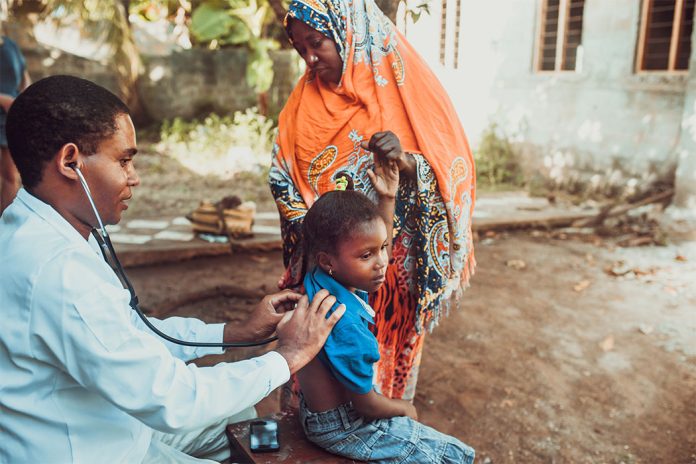Facebook Twitter (X) Instagram Somali Magazine - People's Magazine
The Africa Centres for Disease Control and Prevention (Africa CDC) has declared a public health emergency due to the rapid escalation of monkeypox cases across the continent. The decision comes as the number of infections continues to rise sharply, particularly in Central Africa, where the disease first emerged.
Outbreak Origins and Spread
Monkeypox is a viral infectious disease that has recently seen a significant increase in transmission rates across Africa. The current outbreak began in the Democratic Republic of Congo (DRC), where the disease has been a persistent health issue for years. However, recent developments have seen the virus spread beyond the DRC’s borders to neighboring countries, triggering alarms among health authorities.
The virus is primarily spread through close physical contact, which includes touching lesions or bodily fluids, prolonged face-to-face contact, or contact with contaminated materials. Monkeypox presents with symptoms similar to those of the flu, such as fever, headache, and muscle aches, but is distinguished by the development of skin lesions filled with pus. While the majority of cases are mild and self-limiting, the disease can be fatal, especially in vulnerable populations.
Variant Strains and Severity
The monkeypox virus has two main strains, known as Clade I and Clade II. The ongoing outbreak in the DRC initially involved Clade I, which is the more virulent strain. However, a newer, deadlier variant known as Clade Ib has been identified and is causing particular concern due to its higher fatality rate and its disproportionate impact on children.
This new variant has contributed to a dramatic increase in the number of cases. The Africa CDC reports that the region has seen a 160% rise in monkeypox infections compared to 2023. As of now, more than 15,000 cases have been reported, with 461 deaths attributed to the virus. These figures highlight the severity of the current situation and underscore the urgent need for a coordinated response.
International Response and Vaccine Availability
The international community has started to respond to the escalating crisis. A spokesperson for the U.S. State Department, Vedant Patel, stated that the United States is closely monitoring the spread of monkeypox in Central Africa. In response to the outbreak, the U.S. has pledged more than $17 million in additional health assistance to support preparedness and response efforts in Central and Eastern Africa. This funding is intended to help local health authorities manage the outbreak, including through surveillance, case management, and public health education.
Despite these efforts, one of the major challenges in controlling the outbreak is the availability of vaccines. There are currently three approved vaccines for monkeypox, but access to these vaccines remains limited. The difficulty in acquiring vaccines is compounded by logistical challenges in distribution, especially in remote and conflict-affected areas of Central Africa.
Potential Global Impact
The current outbreak of monkeypox in Africa has raised concerns about the potential for the virus to spread globally. In 2022, Clade II, the milder strain of the virus, caused a global outbreak that led the World Health Organization (WHO) to declare a public health emergency of international concern. Given the rapid spread of the more severe Clade Ib variant, there is growing concern that the situation in Africa could once again lead to a global health crisis.
The Africa CDC is scheduled to convene this week to discuss the situation and to determine whether the current outbreak should be declared a global public health emergency. This decision will likely depend on the continued spread of the virus and the effectiveness of ongoing containment efforts.
Conclusion
The monkeypox outbreak in Africa is a rapidly evolving situation that demands urgent attention from both African and international health authorities. With the number of cases and fatalities continuing to rise, and the spread of a more dangerous virus variant, the declaration of a public health emergency by the Africa CDC is a crucial step in mobilizing resources and raising awareness. However, with limited access to vaccines and ongoing challenges in containment, the situation remains precarious, with the potential to escalate into a global health emergency if not effectively managed.

